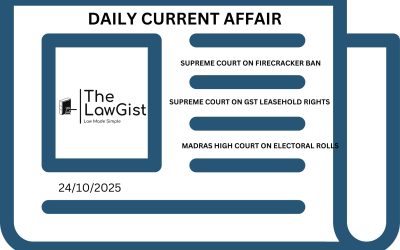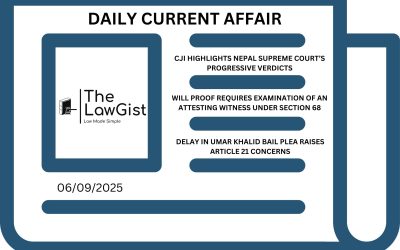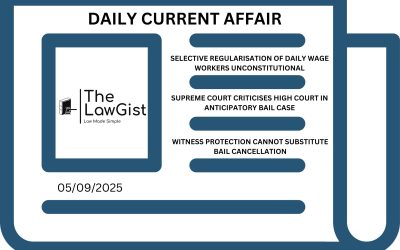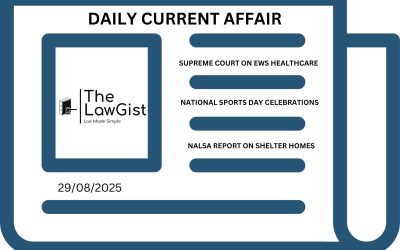
Prime Minister Modi welcomes Vice President J.D. Vance and Second Lady Usha Vance in New Delhi, April 2025.
PM MODI & U.S. VICE PRESIDENT VANCE MEET TO STRENGTHEN STRATEGIC PARTNERSHIP-LEGAL PERSPECTIVE
| Recent Fact- In a high-level diplomatic engagement, Prime Minister Narendra Modi welcomed U.S. Vice President J.D. Vance, accompanied by Second Lady Usha Vance and their children, during an official visit to New Delhi. The visit underscores the deepening strategic partnership between India and the United States—two of the world’s largest democracies—and sets a collaborative tone for future cooperation in trade, security, and global governance. |
Strengthening Bilateral Ties Through Diplomacy and Law
Prime Minister Modi’s successful visit to Washington, D.C., earlier this year, where he met with President Donald Trump, follows this meeting. Their conversations established a solid basis for strengthening collaboration founded on strong legal frameworks regulating trade and international agreements in addition to common values.From a legal perspective, this developing relationship shows a dedication to maintaining bilateral treaties, honoring international conventions, and making sure that World Trade Organization (WTO) standards are followed. Through legally binding agreements, organized discussions, and strategic Memoranda of Understanding (MoUs), the India-US partnership is still developing and provides a clear and solid foundation for sustained collaboration.
Progress on India-U.S. Bilateral Trade Agreement: A Legal Milestone
The India-U.S. Bilateral Trade Agreement, which is set to become a historic legal agreement with the goals of lowering tariffs, removing regulatory obstacles, and offering legal protection for investments, was reviewed by Prime Minister Modi and Vice President Vance.
Strong dispute resolution procedures, including as investor-state arbitration clauses and intellectual property rights protections, are anticipated to be included in this agreement. In addition to promoting foreign direct investment, these legislative safeguards will guarantee that companies doing business in both states are treated fairly under international law.
Legal Dimensions of Strategic Cooperation
The leaders emphasized strengthening cooperation in defense, cybersecurity, energy, and emerging technologies, which inherently involves complex legal arrangements such as:
- Defense Cooperation Agreements: These include foundational pacts like COMCASA, BECA, and ISA, which are rooted in mutual legal assurances regarding interoperability, data sharing, and logistical support.
- Technology Transfers: Legal scrutiny over dual-use technologies, export control regimes, and non-proliferation obligations continues to play a crucial role in ensuring that technological cooperation aligns with global norms.
- Energy Partnerships: Long-term LNG supply agreements and renewable energy collaborations are governed by binding contracts under international commercial law.
Addressing Regional and Global Legal Concerns
The significance of legal procedures like the United Nations Charter, UNCLOS (United Nations Convention on the Law of the Sea), and multilateral forums in resolving conflicts and advancing peace was emphasized by both presidents during their discussions of contemporary regional and global concerns.
In order to settle international disputes, preserve maritime security, and protect human rights, India and the United States reiterated their shared confidence in a rules-based international order and called for communication, diplomacy, and legal frameworks.
President Trump’s Anticipated Visit: Legal and Diplomatic Implications
Prime Minister Modi greeted President Trump warmly and said he was looking forward to his trip to India later this year. With the signing of other bilateral agreements that could cover commerce, defense, climate change, and digital governance, the next visit is anticipated to further formalize the partnership.
Conclusion
Prime Minister Modi and Vice President J.D. Vance’s discussion highlights a complex and developing legal alliance in addition to a confluence of strategic goals. Mutual respect for international law, clearly defined legal frameworks, and a common goal of a safe, rules-based world order are all influencing the two countries’ future cooperation.
SOURCE – PIB
ALSO READ – VICE PRESIDENT DHANKHAR’S REMARK ON ARTICLE 142







